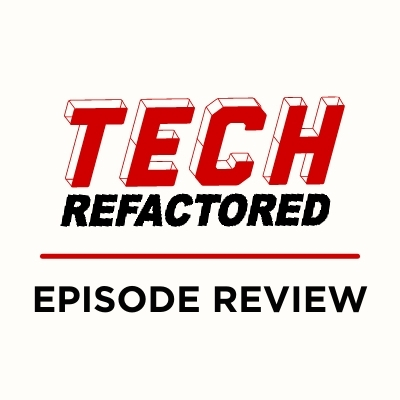Sun, 05/02/2021
This post is a summary of Episode 15 of The Nebraska Governance & Technology Center’s (NGTC) Podcast Series, Tech Refactored. Host Gus Hurwitz, Director of the NGTC, was joined by Tabrez Ebrahim, Cassandra Burke Robertson, and Sharona Hoffman.
Over the past several months, we have been working with a group of scholars on projects under the heading of ‘Regulation at Scale,’ basically looking at the challenges that arise when new rules or technologies affect broad swatches of society at once. This was prompted in part by the COVID pandemic and struggles with issues that we, as a society, need to respond to very abruptly, without much opportunity to test our solutions. This is in conflict with society’s usual preference for making changes based on slow, thoughtful deliberation achieved through the evaluation of data (at least, when society is functioning at its best).
The first scholar to participate in the discussion was Professor Tabrez Ebrahim, whose project aims to connect individuals seeking legal assistance to service providers such as lawyers and others that can provide solutions to their legal needs. A key issue that has been proposed for Dr. Ebrahim is how to navigate the internal tensions that exist with the model rules of professional conduct that apply to lawyers, and specifically the limitations that are placed on lawyers in terms of solicitation of business. How do those limitations act in the case of a broad online marketplace.Those limitations are, of course, well intended, but if they have the effect of denying individuals access to justice who might have found representation through an online marketplace, that can’t be a desirable outcome from a policy standpoint.
This is an issue with particular salience here in Nebraska, where there are counties that literally lack a single attorney- so, as Hurwitz says “if you need someone to help draft a will, or to help with selling a business or purchasing a house or something like that, you might not have access to justice.” For Ebrahim, part of the function of a legal services online platform would be to provide individuals with information on the basics of what their fundamental legal problem is. So in that sense an online legal platform can also be educational.
Next, Professor Hurwitz was joined by Cassandra Burke Robertson, and Sharona Hoffman to discuss their paper, recently accepted for publication, on “how technology enables professional advice to reach a broader audience.” “In a nutshell, we're looking at how technology enables professional advice to reach a broader audience. So communicating, not just to a single client or a single patient, but actually communicating with the public at large. We examine the regulatory challenges that come from this change in scale, and we make some recommendations for improving professional regulation.
Much of their paper looks at how, in the case of the legal and medical professions (their fields of study), technology has complicated the regulatory landscape. In the case of medicine, much of the discussion has centered around telemedicine, “which allows physicians to practice not only in the examination room or operating room, but really across state borders and even globally.”
“And then there’s AI, where a healthcare professional can come up with an algorithm and then,” from there, it can be used by literally thousands of practitioners to make decisions about diagnoses and treatment. And lastly, social media can serve as a platform where public health officials can really reach a global audience, and, in a best case scenario, provide evidence based, timely information to combat disinformation.
This is, of course, in contrast to the ability of actors to use these platforms to provide really problematic, misleading information- in the case of Covid-19 there was information that was disseminated early on by some very high-level, legitimate sources that indicated that masks were not effective, at least in casual settings, in preventing Covid-19. Also, there was of course a great deal of misinformation regarding the efficacy of certain medications with regard to treating Covid-19 infections.
While the conventional wisdom would be that it is a bad thing to have unlicensed individuals offering legal advice on a forum such as reddit, Robertson offers the interesting perspective that it may actually be a better reality than the alternative, where some of these people, because of cost barriers, would have absolutely no access to to legal advice.
People in the aggregate are really quite smart, and you get a group of 10 or 20 people who are motivated to find a legal answer. Or even if they’re not licensed, even if they don’t have legal education, they generally do come up with some pretty decent information- certainly better than requiring somebody to go without it entirely.
